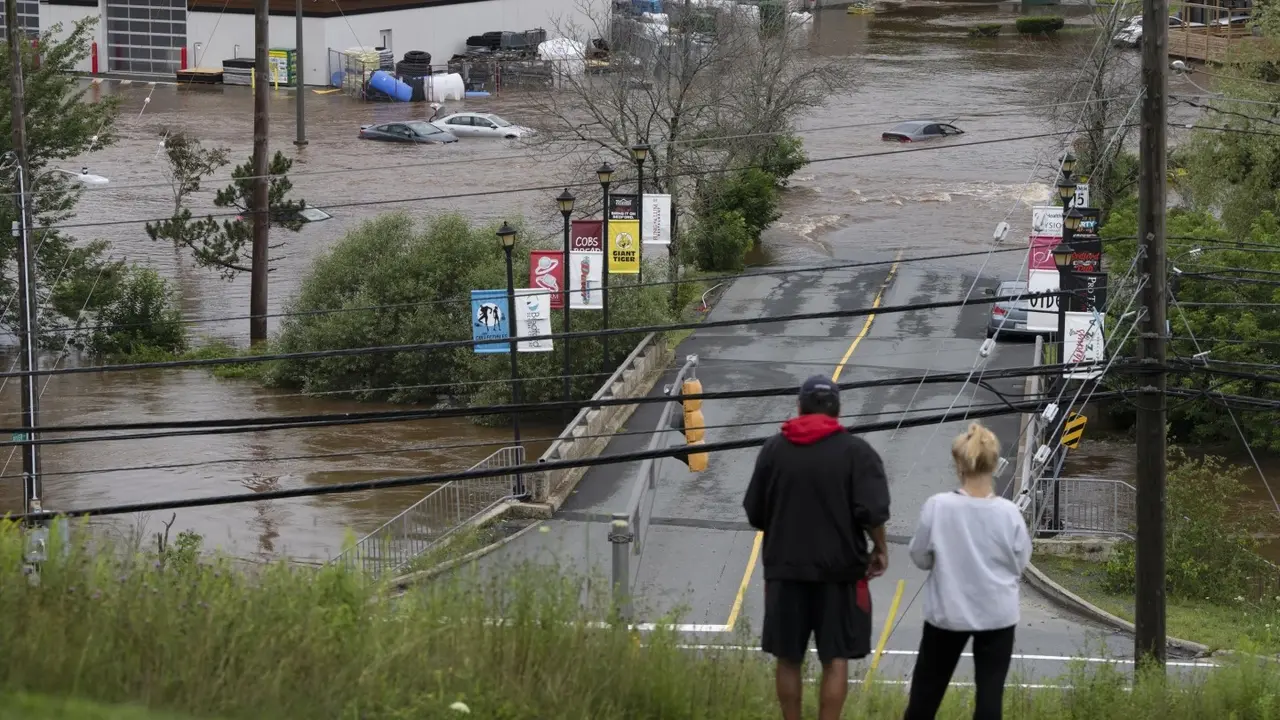Updated 28 March 2024 at 22:08 IST
Is Canada Implementing a 'Rain Tax'? Here's What Stormwater Charge Means
Canada, in an attempt to address the problem of stormwater management, has reportedly planned to introduce a ‘rain tax’ next month.
- World News
- 3 min read

Rain Tax in Canada: Canada, in an attempt to address the problem of stormwater management, has reportedly planned to introduce a ‘rain tax’ next month. If reports are to be believed, the move aimed at addressing the challenge of stormwater management in the Canadian city of Toronto, the city's municipal authority is considering the introduction of a 'rain tax' and the plans are in place for its implementation in April 2024.
According to the Toronto government's official website, the government in collaboration with water users and interested stakeholders is processing a "Stormwater Charge & Water Service Charge Consultation" program in a bid to tackle stormwater management also known as 'rain tax'.
Rain tax is likely to be implemented from April 2024
It is being said that the authorities actively collected feedback from water users and stakeholders regarding the potential implementation of a stormwater charge and water service charge, inviting participation in a survey before April 30.
In the last few years, stormwater management has been a big problem in almost the entire Canada including the city of Toronto. Due to stormwater, people's daily activities have been deeply affected. Keeping in consideration the ever increasing troubles of the common citizen by the stormwater, the government has decided to implement rain water.
Advertisement
Toronto's official website states that the government is working on a ‘stormwater charge’ and water service charge consultation program to address stormwater management in collaboration with water users and the stakeholders.
It is being said that along with rainfall, snowfall too occurs in abundance in Canada. Due to the climatic condition in Canada, the water doesn’t get absorbed by the ground or trees and plants leading to water-logging problems on the concrete streets creating problems related to drainage systems.
Advertisement
About ‘stormwater’
“Stormwater is rain and melted snow. When not absorbed into the ground, stormwater runs off hard surfaces, onto streets, down storm drains and through a network of pipes that carry it into local waterways," stated the official government website.
Under this plan, the authorities plan to implement a 'stormwater charge' across all property classes. Additionally, they will put in place a program that offers stormwater charge credits for larger properties, alongside administrative water charges that are referred to as a "water service charge."
The website noted that a large amount of stormwater can overwhelm the city's sewer system, which can lead to flooded basements and impact the surface water quality of the city's rivers, streams and lakes.
How will stormwater charges be calculated?
Toronto's residents already pay water utility bills that include costs of stormwater management. The website states, “A stormwater charge would be based on the impact of a property with respect to stormwater runoff to the City’s storm sewer system, which is represented by the amount of hard surface area on a property. Hard surfaces include roofs, asphalt driveways, parking areas and concrete landscaping."
Under the stormwater charge proposal, properties will be targeted based on their impact on stormwater runoff into the city's storm sewer system which will be measured by the amount of hard surface area on the property.
So, in Canada, the more water that goes into sewerage via people's homes, the more tax will be collected from them. This rule itself is being called ‘rain tax’. However, many people are raising questions and protesting against this decision of the Canadian government.
Published By : Abhishek Tiwari
Published On: 28 March 2024 at 22:08 IST
